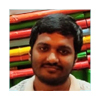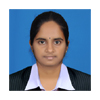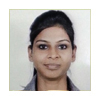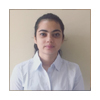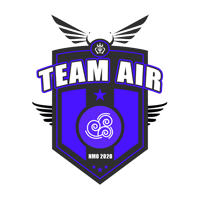
Announcement
SEMI FINAL | BUSINESS CASE - BCS 05
Finance Manager Submission BCS 05
NMO 2020
Financial Optimisation and Business Strategy of Vayu
Submission Date & Time : 2020-04-11 04:25:13
Submitted By: ARCHITA S - Finance Manager From Team Air
Assignment Taken
Annual Operating Plan for Financial Year 2020-21Case Understanding
The startup case study is based on the electric vehicle sector. Eyeing on the relevance of the government’s vision to create electric vehicles, eight bright minds with an entrepreneurial mindset decided to venture into the electric vehicle segment. Owing to the prior experience of the members from the engineering background, the team already had a prototype. Problems identified: The startup had very limited funds. Electric vehicles are a sector in which huge capital investments are required. However, being in its initial stage the startup only had 46 lakhs as the investment from the founding members and 60 lakhs as loan. The salary that each founding member demands is not feasible at the current state of the company At this stage, a good operating plan that promises profitability in the future would assist the startup in getting funded. For the case as a whole, other major problems exist as in devising a market entry strategy in a market with competitors, finding the right market to launch the product, developing the product and so on.BCS Solution Summary
The operating plan is critical to the functioning of the firm. It directs the path that the members of the organization must take in order to achieve its goals. The Operating Plan Of Vayu is divided into four parts: Activities Planned Cost incurred Expected Inflow Expected projections for the futureSolution
With the initial funds that Vayu had, it was clear to the team that we cannot venture into mass production as of now. Hence it was decided to launch our product commercially into the market after two years. The Operating Plan of Vayu is as follows
FY 20-21
1. Activities Planned
-
Manufacturing of the Test Model
-
Procuring Angel Investment
-
Negotiating and signing contracts with partner companies
-
Completing the legal formalities for the test model
-
Participating in auto expos
Plan in detail
Manufacturing of the Test Model
Before the birth of the company Vayu, our founders had already designed the prototype of the same. Our next step is to convert into a model that can be tested on the road. For this purpose, we have divided our production into 4 phases.
Phase 1
Finding suitable vendors for the manufacture of different parts. To reduce the cost of manufacturing we aim to import most of the critical parts of the vehicle from China. Our team creates the design, communicates with different vendors for the quotes and strikes the deal. The most important parts procured using this method being engine, battery, smart screen. Advances are paid to the vendors in this phase.
The payment made in this phase which occured in Q1 of the financial year was 20000 for Elektra and 40000 for Elektra plus.
Phase 2
In this phase, we procure the raw materials needed for the assembly of the final product from the local markets. The parts being nuts and bolts, seat covers, handlebars, mirror, body and so on. Simultaneously we carry out our in-house development of the anti-theft vehicle management system application along with some outside help.
The payments estimated for this phase which occurs in Q2 of the financial year is 30000.
Phase 3
During the initial part of the phase, scouting people to assemble the product. By the middle of phase 3, the manufactured products from China would arrive in India. Soon as the product arrives, the team would conduct quality testing to ensure that the products are in the specifications mentioned and are working efficiently. Final payments to all the vendors both national and international would be made in this phase.
The payments estimated for this phase which occurs in the Q3 of the financial year is 100000.
Phase 4
In this phase, the assembly would begin. The whole process would be completed by the end of 1st month of Q4.
The expenditure estimated for Q4 of the financial year is 15000.
Procuring Angel Investment
As getting funded is an integral part of our growth strategy, we plan to raise 2.5 crore for 2% shares of the firm in the month of October. Our team has already progressed with conversion of the prototype into a working model and are already in talks with various potential investors.
Contracts with Partners
Vayu plans to launch its first two scooters Elektra and Elektra plus in April 2022. The production process in the initial years would be based on Assembly line Manufacturing wherein we get our raw materials from outside. For this purpose, we are going to negotiate with different vendors to strike the deal for bulk purchase. The integral parts of our machine would be produced in China. Hence negotiations and contracts would start early in order to prevent any backlashes once we start our production process.
Legal formalities for the test model
There are many legal aspects when it comes to opening a business some of which are listed below:
-
Registration of Company
-
Intellectual Property Right
-
Employee Agreement Form and Non Disclosure Agreement
-
Manufacturing permits
-
Central and state government license to start a manufacturing plant
-
License for service and recharge stations
-
Pollution permits
-
GST
To account for some of these a provision of ₹50000 has been made in the operating plan.
Auto-expos
To create a buzz around the product in the first year we decided to showcase our product at different auto expos in the country to get the necessary coverage. A provision of ₹30000 has been set aside for it.
2.Costs incurred
The total expenses incurred during the year will amount to ₹45,78,000.
The expenditure for manufacturing of test model, which has been detailed before is ₹2,05,000. Though this is way higher than the selling price of both the models combined ₹1,65,000. This increase is due to:
-
Single unit import from China
-
Redesigning of some parts for better adaptability
-
Quality testing under various conditions
-
Single unit purchase from local suppliers
With an assembly line and mass production, the cost would come down to be way lower.
Salary was another area where cash was spent. Initially though the requirements of the team was ₹50000 per month everyone unanimously agreed to make it ₹35000 per month till the time Vayu gets funding. After the receipt of Angel Funding, by common consent it was agreed that the salary would be ₹40000 per month till the time the test model was successfully completed after which it increased to ₹45000 per month . Further increase would occur once a venture capitalist invests. Total salary expense amounted to ₹36,40,000. Five interns were hired from January to assist in the assembling process. They would be given ₹2000 per month with a provision for permanent employment, once mass production has started. This cost came out to be ₹30000 for three months.
Rent was another avenue of expenditure. The co-working space with ₹3000/person, cost ₹288000 for the year. An additional cost of ₹10000 occured in rent in January due to renting a shed for the purpose of assembly.
A provision for legal expense of ₹50000 and marketing (showcasing in expos) of ₹30000 were included.
A provision for miscellaneous expenditure was created. This would pay for the eventualities that arise, overhead costs in receiving the raw materials and as an emergency fund from which the founders could draw money if such a need arises. Except in November, the miscellaneous cost remained ₹20000. The increase in November to ₹40000 is due to the expectation of arrival of imported goods for which we need to bear the overheads. The increased overheads from January ₹45000 and ₹35000 in the subsequent months is owing to taking the product for various licenses, expos etc. Total miscellaneous expenditure is ₹3,15,000.
3. Expected Inflow
In the first year of operations, there is no expected inflow other than the funding of ₹2.5 crore to be obtained from angel investors.
4.Expected Projections for the Future
From the operating plan, it can be seen that the loan amount is still untouched and we have ₹3,10,22,000 (including ₹60,00,000) loan. Hence we are in a safe position to start thinking of mass production. However setting up a plant would require at least ₹4.5 crore to ₹6 crore, hence we would have to approach venture capitalists. The team would be in constant search of them from the time the product is successfully tested.
For the next four years we need a venture capitalist funding of ₹105 crore .We plan to expand to other cities consolidate our position with the two existing products in the coming 4 years before venturing into other products. From the projections it can be seen that the from year 4 we would be operating at a profit and ever since our inception we are above break even sales. This could be due to :
-
Introduction into a new market
-
Popularity of e-vehicles.
-
Government restrictions on pollution
Please refer to the financial projections attached for further reference.
We estimate a profit of 41 crore in Year 5 because of people’s trust in us, achieving economies of scale for the company and the increased sales.
We will venture into newer models after this.
Management principles used:
Economies of scale
Economies of scope
Break even sales
Financial projections
Conservative accounting
Conclusion
We could not start production till year 3 due to lack of funds. However, we were not sitting ideal and this homework lead us to make net profit in year 4. As the expenditure incurred in this sector is more as indicated by the projections, it is ideal to wait for the funding and then proceed so as to minimize loses. The planned angel and venture funding of 2.5 crore and 105 crore respectively will propel the company to greater heights and increase the valuation of the company manifold.Attached File Details
Comments
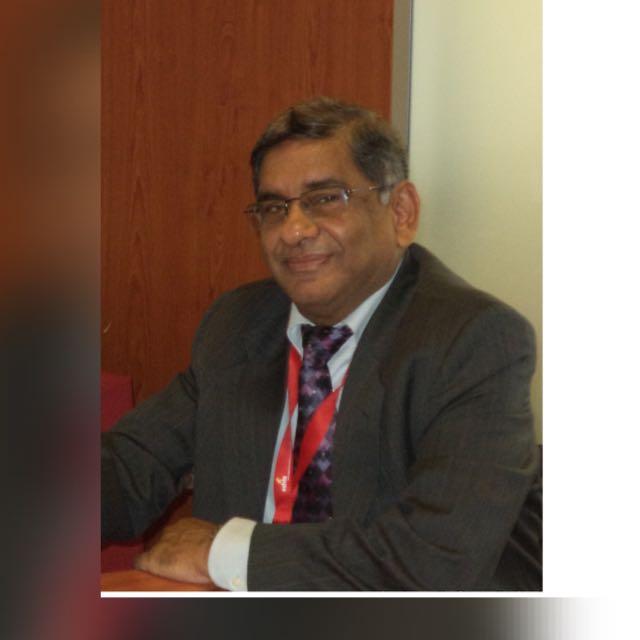
Dr Saroj Kumar Dutta
Good Job Done, very well explained operating plan and attention to detail is excellent. Few assumptions like 2.5 crore for 2%stake could have been substantiated. Overall Very nice. Good Luck.
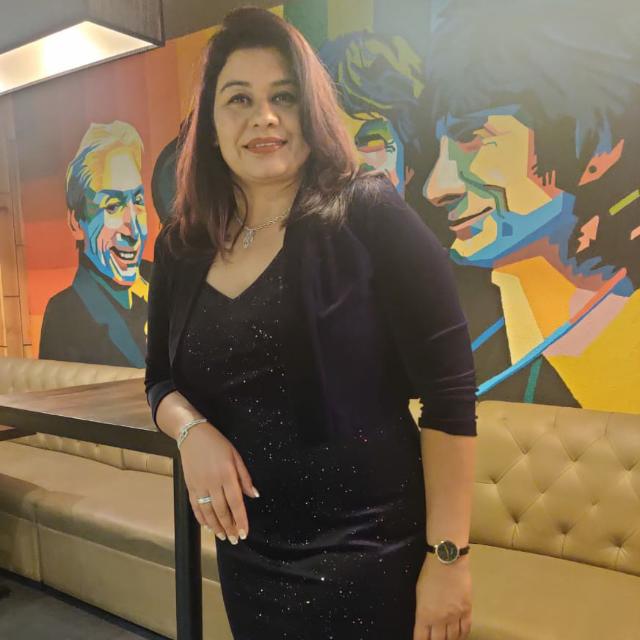
Rajni Khosala
A meticulous plan keeping note of all key areas hoping application meets plan!Keep up good work
Participant
ARCHITA S
IIM INDORE
Pursuing Integrated Programme in Management from IIM Indore. Cleared CFA L1 in December 2019. Interested in finance.
Team Sky BCS 05 Submission
Total Team Points: 39806.5
Team Air BCS 05 Submission
Total Team Points: 38397
Team Fire BCS 05 Submission
Total Team Points: 36238


